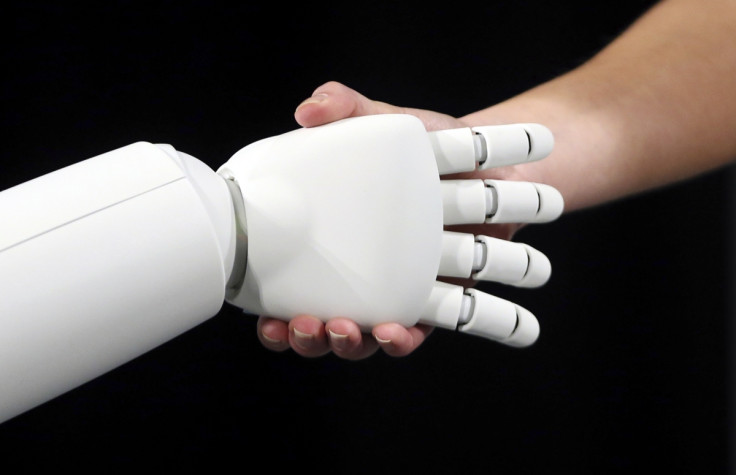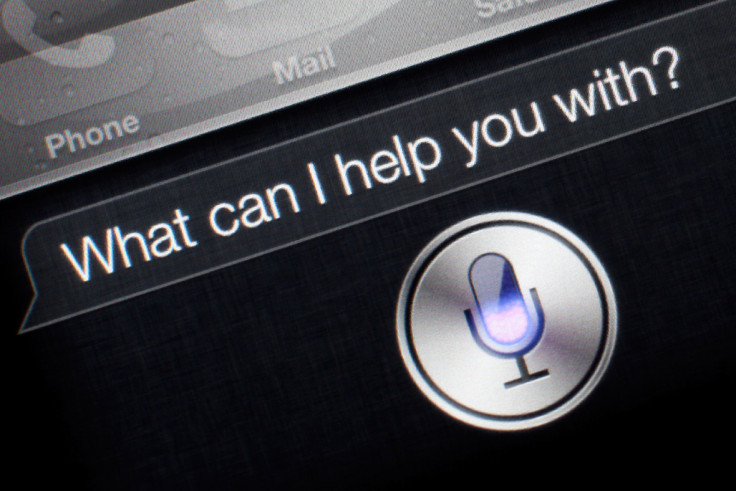Chatbots: What can they do and why is everyone talking about them?

With technology pioneers Facebook and Microsoft both throwing their multibillion hats into the chatbot ring, it is safe to say the dawn of the bot is upon us.
But "what is a chatbot?" we hear you confusedly cry. Well, you're going to hear a lot of noise about them and while the name might explain a lot, let us clear up the many unanswered questions of what they're for, how they work and whether they're the harbinger of the inevitable robopocalypse.
What is a chatbot?
In basic terms, a chatbot is a rudimentary form of artificial intelligence software that can converse with humans to answer questions or simply natter to us in as lifelike a manner as possible. The scope and complexity of a chatbot is determined by the creator's algorithmic aptitude.
Combining pre-set scripts and deep learning neural networks, bots can predict an accurate response to a posed question or statement in a way that skips phases of conversation to mimic regular chat.
As an example, you could ask a chatbot which big budget blockbusters are currently showing at the cinema and be offered the answer, as well as it smartly recognising you might want to know related facts such as theatre location and screening time, without you needing to ask additional questions — something a "meat-bag" human might fail to offer.

Where can you use them and why?
Most likely you are using them already, you just don't know it.
If you have ever asked Apple's Siri or Microsoft's Cortana what the weather will be like for a weekend picnic, you have unknowingly conversed with a chatbot usually dubbed as a personal assistant.
Facebook's F8 conference on 12 April 2016 specifically focused on the future of chatbots in its own proprietary instant messaging client, and echoed a wider trend of bots invading online chatter.
The social media giant announced that the Facebook Messenger app will now allow retailers and news/public information outlets to integrate bots capable of responding to user queries, with the promise that any required responses would be much faster than waiting to speak to a real-life representative.
In China, for example, users of the WeChat texting service can pay for services from verified companies and restaurants within the chat app.
Facebook CEO Mark Zuckerberg demonstrated the potential of third-party bots with US florist 1-800-Flowers, a company that has designed a bot to "answer questions, make gifting suggestions, process orders [and] send shipping updates" in a conversational manner. Uber taxi bookings, Wall Street Journal stock updates and Expedia holiday planning are also prepared or already available, bots on Facebook Messenger are seemingly here to stay.
It certainly doesn't stop there though, Microsoft already has a ludicrously popular and surprisingly compassionate chatbot in Xiaoice – a Chinese companion intended for teens that youngsters have been more than willing to pledge their undying love to — and tech giants like Amazon and Google are heavily invested in talkative AI.
Is a chatbot the 'next big thing'?
This learn "on the job" intelligence signals a shift in focus that Evan Wray - co-founder and VP of Swyft Media - believes will see bots becoming a common, efficient alternative to apps in the near future. Wray told IBTimes UK:
The prominent theme from Facebook's conference in particular was the impact chatbots will have on customer service expediency, although Julien Hervouët, CEO of iAdvize, emphasised to IBTimes UK that "bots and human agents are complementary when it comes to offering the best customer experience possible".
While this indicates a possible harmonious future between service-orientated professionals and chatbots, it will not halt looming fears of human obsolescence in certain vocations in the face of new AI technologies.
Are they really that clever?
While sentient or human-level artificial networks are still the stuff of speculative science fiction (leading scientists are quite a few billion off of the human brain's 10bn neocortex processors), we have at least come a long way since Eliza, a 1960s creation from researchers at the Massachusetts Institute of Technology that is commonly acknowledged as the first-ever chatbot.
Joseph Weizenbaum's early attempt at creating a computerised psychotherapist had a penchant for responding to statements and questions with rephrased questions on the same topic to little avail, but it set a precedent for the bright future of the chatbot race.
Although Eliza offers almost zero practical value in the highly connected world of today, thankfully, chatbots have evolved exponentially in recent years, although there are still plenty of frivolous instant messenger distractions and a slightly creepy swathe of "romancebots".
At least they are giving AI something better to do than humiliating people at the Chinese equivalent of chess or mimicking Donald Trump.

What lies in the future?
As for the future of bot-kind? Well, with the ubiquity of messaging apps, the overarching public desire for more efficient online services and industry figureheads heralding chatbots as the "next big thing", it is hard to imagine that chatbots will be disappearing any time soon.
Between Facebook teaching its AI to read children's stories and researchers suggesting that Google's Deep Mind learning system will one day be able to accurately predict changes in the stock market, the technology behind chatbots is advancing at an unprecedented rate, resulting in smarter conversation partners with each new development.
Perhaps one day we won't be able to tell the difference, maybe falling in love with a smartphone assistant won't just be the subject of a Spike Jonze film. Who knows? Maybe we should ask a chatbot?
© Copyright IBTimes 2025. All rights reserved.






















